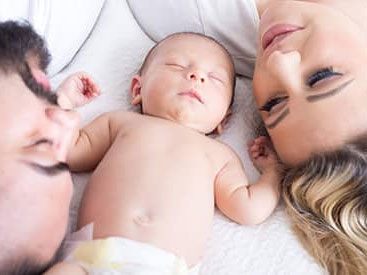Make Mums Group Dad-Friendly

Changes Needed To Make "Mums Groups" Dad-Friendly: Deakin Study
Modern parenting groups are perpetuating gender stereotypes that lock out fathers from important support services, an Australian-first study from Deakin University has found.
Researchers from Deakin's School of Health and Social Development examined the perceived barriers to new mums and dads attending first-time parents groups and found the problems often started with the group's name.
Lead researcher Norma Barrett, a Lecturer in Public Health and Health Promotion, said the groups were often colloquially known as 'Mothers Groups', even in Victoria where 20 years ago they were officially changed to 'First-Time Parents Group' to recognise and encourage fathers' participation.
Two decades on, despite the name change, studies show fathers are still vastly underrepresented in these groups in Victoria, and Australia-wide.
As part of the study, recently published in the journal Nursing & Health Sciences, Ms Barrett interviewed a group of first-time mothers in Warrnambool, Victoria, about their experience attending a parents group and the barriers they saw to their male partner attending.
"First-time parents of either gender were actually invited to participate in the study, but tellingly only women volunteered to do so," Ms Barrett said.
"These mums told us that parents group was an important support for them, but was not accessed by their male partner."
Common barriers for dads' participation (as viewed by their partner) included:
• The group was publically framed as a female space and colloquially referred to as a 'mums group'
• Most sessions were scheduled during typical work hours
• The invitation to participate was sent to the mother and did not explicitly state whether dads were welcome to attend
• Early childhood parenting was perceived as a female activity
• They did not want to be the only dad at the class
• They would only attend if their female partner explicitly asked them to
"Sadly, based on what the participants told us, the fathers who did express an interest in parents groups quickly realised it was a female dominated space and stopped attending," Ms Barrett said.
But Ms Barrett said it was crucial fathers were actively included in parenting support services.
"The transition to parenthood can be an anxious time for both mothers and fathers. The arrival of a first child affects multiple facets of parents' lives including their physical, mental and social health," she said.
Ms Barrett said her research showed first-time parents groups were perceived as sites strongly reinforcing traditional social and gender norms of parenting, which not only put off fathers from attending, but also some mothers.
"For example the mother may have previously experienced a stillbirth, their child may have a disability or other developmental difficulty, or their parenting style may be different to the norm.
"Previous research shows first-time parents groups are beneficial to both mums and dads. As well as providing parenting information, they nurture family connection, provide peer support and a sense of community connectedness.
"It's also important to recognise that in Australia, more than 18 per cent of lone parents are male and the number of same-sex parents is growing."
Ms Barrett said more research was needed to hear from fathers about their perspectives, but also adoptive parents and same sex parents too, so all parents can feel supported.
She said pre-natal classes and routine health appointments could be used as opportunities to normalise and set expectations for fathers attending first-time parent groups.
"Opportunities for some segregated sessions could be investigated if that was identified as better suiting certain needs, but it's not okay for dads to continue to be left out altogether," she said.
"We need to move away from the idea of a 'mums group'. That means explicitly inviting fathers to attend, scheduling session times that suit working parents and ensuring that facilitators actively encourage father participation.
"Fathers are no longer simply the household breadwinners. They are very active parents in contemporary households, often sharing the childrearing load with mothers also working outside the home. Yet our support services have not necessarily adjusted to this change in family dynamic."
In Victoria groups for new parents are delivered by maternal and child health nurses and funded by the Department of Health and Human Services. They typically run for four to six weeks and are designed to allow parents the opportunity to meet and share experiences.
MORE
- Midwife Cath Interview
- Colin Anson Interview
- Why Good Health is Essential to Increase Fertility
- 5 Beauty Products to Avoid When You are Pregnant
- Looking After You, Looking After Your Baby
- Andre Carvalho International Pregnancy and...
- NRL Player v Mums
- Safer Internet Day
- The Pink Elephants Support
- Edwina Sharrock Birth Beat Interview
- Make Mums Group Dad-Friendly



